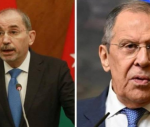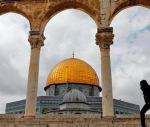You are here
Russia’s military intervention in Syria
Oct 04,2015 - Last updated at Oct 04,2015
The US and Russia seem to have finally agreed that fighting terrorism in Syria is a priority.
This poses a new challenge to many countries, which will need to shift their position vis-à-vis the Syrian crisis, including to Syria’s neighbouring countries such as Turkey and Jordan.
A new anti-terrorism coalition needs political and security coordination, which might be quite impossible due to the contradiction in the positions of different countries.
Nevertheless, having Russia as initiator of the proposal should make participation in a coalition easier, especially since recently Moscow has become a destination for many Middle Eastern leaders, including King Abdullah, Turkish Premier Recep Tayyip Erdogan and Israeli Prime Minister Benjamin Netanyahu.
Moscow made itself a point of coordination for the war in Syria. Russia’s presence in Syria offers at this stage the possibility of cooperation among all parties, which should help any future anti-terror coalition.
However, Turkey and Jordan see a significant difference in their expected role in the coming war against Daesh.
While Turkey is requested to close its borders and block any movement of weapons and fighters, Jordan’s geography imposes some serious challenges at both the northern and eastern borders.
Jordan’s security requires careful attention to Syria’s southern areas, due to the fast breeding of terrorist groups that are always on standby to move.
Jordan should concentrate on two major points. One is security, while the other concerns the future of the Syrian refugees in Jordan and the possibility of coordinating a safe return for them.
Jordan needs a long-term strategy that guarantees the safety of its northern and eastern borders.
Such strategy should take into consideration the level of risks coming from the military operation targeting all terrorist groups in the south of Syria.
The Kingdom needs to be aware about the developments in Syria; it might be obliged to build a channel of security coordination with Syria, as security is crucial in the coming phase.











